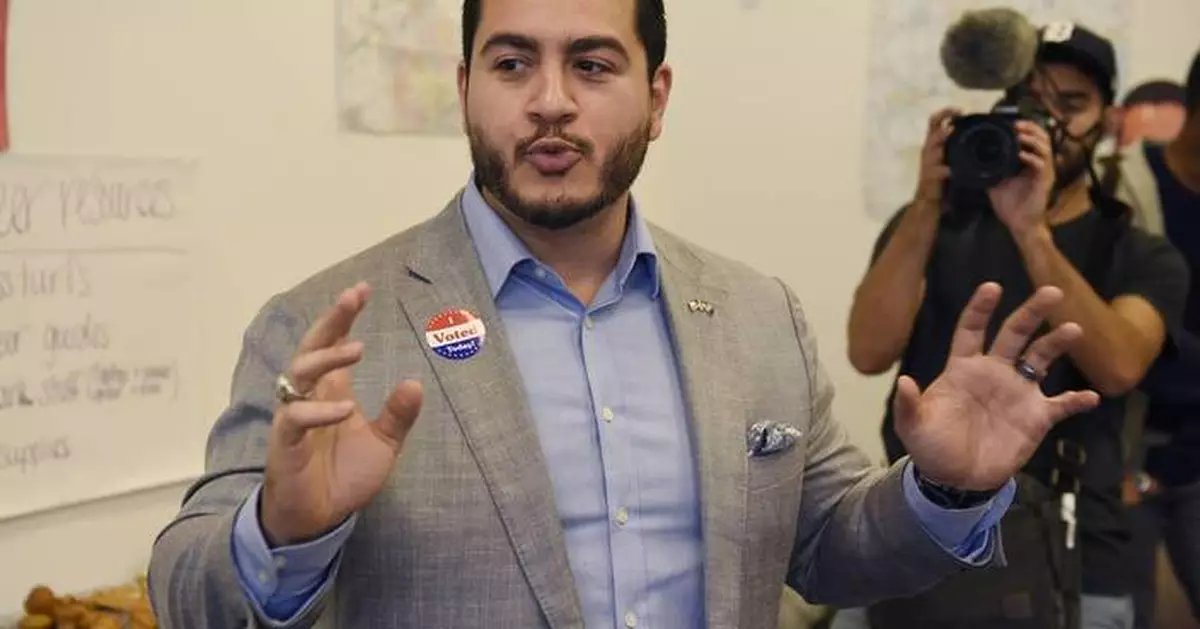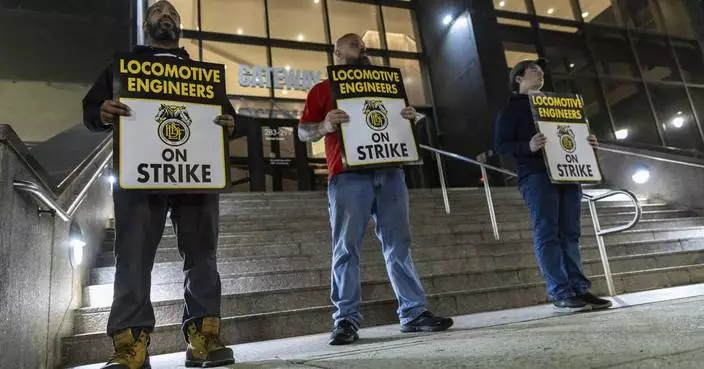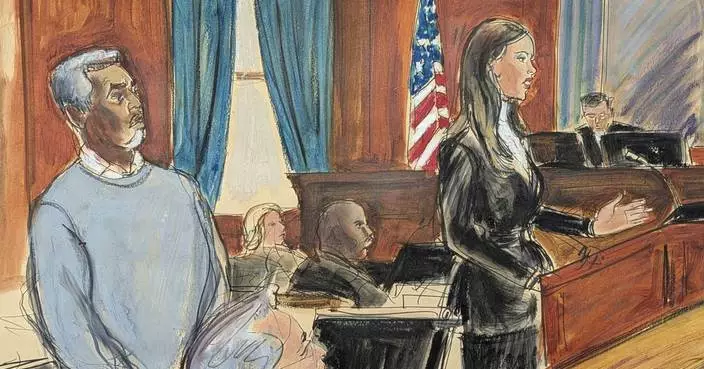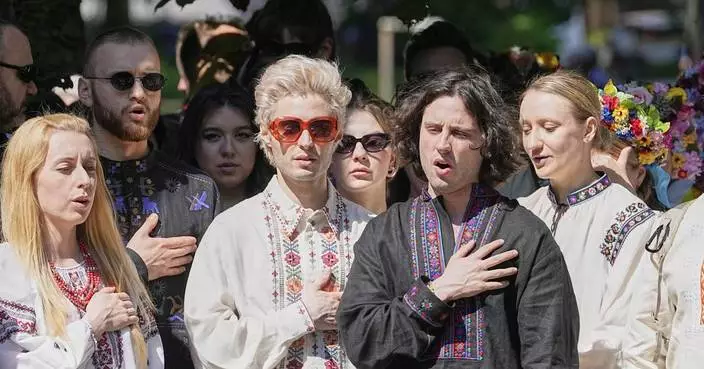LANSING, Mich. (AP) — A former Michigan public health official and Democratic candidate for governor entered the race for the state's open U.S. Senate seat on Thursday.
Abdul El-Sayed, 40, is the second Democrat to put his name in the running in what could be one of the most watched races in the 2026 midterm elections. He's also the second candidate this week to launch a campaign to replace Democratic Sen. Gary Peters, who is not seeking reelection.
“It’s way too hard to survive here in the richest, most powerful country in the world and it should not be this hard to get by,” he told The Associated Press.
El-Sayed ran for governor in 2018 as a progressive Democrat and was endorsed by Sen. Bernie Sanders. He came in second in the Democratic primary, losing to Gretchen Whitmer by more than 20 points and beating now U.S. Rep. Shri Thanedar by more than 12 points. Whitmer went on to win the general election and is in the midst of a second term. She can't run again because of term limits.
Sanders on Thursday endorsed El-Sayed in the Senate race.
“Abdul is a physician who understands that our current health care system is broken and wildly expensive. He understands that health care is a human right, which is why he supports Medicare for All,” Sanders said in a statement.
A resident of Ann Arbor, El-Sayed recently served as director of the Department of Health, Human & Veterans Services in Wayne County, home to Detroit. Before that, he was the public health director of the city after it declared bankruptc y in 2013.
El-Sayed said he's inspired to run for Senate after the overhaul of the federal government brought on by President Donald Trump and Elon Musk, including changes and cuts made at the nation's top health agencies. But he said Democrats must do more than just run on the opposite of Republican policies.
“You have to come with your own independent analysis of what you think the problem is and how you want to solve it, if you want to earn the trust of the public,” he said.
El-Sayed joins state Sen. Mallory McMorrow in the Democratic field of candidates looking to replace Peters. Others considering a run include U.S. Rep. Haley Stevens and Michigan Attorney General Dana Nessel.
On the Republican side, former U.S. Rep. Mike Rogers launched his bid on Monday after losing a Senate race last year by 19,000 votes to Democrat Elissa Slotkin.
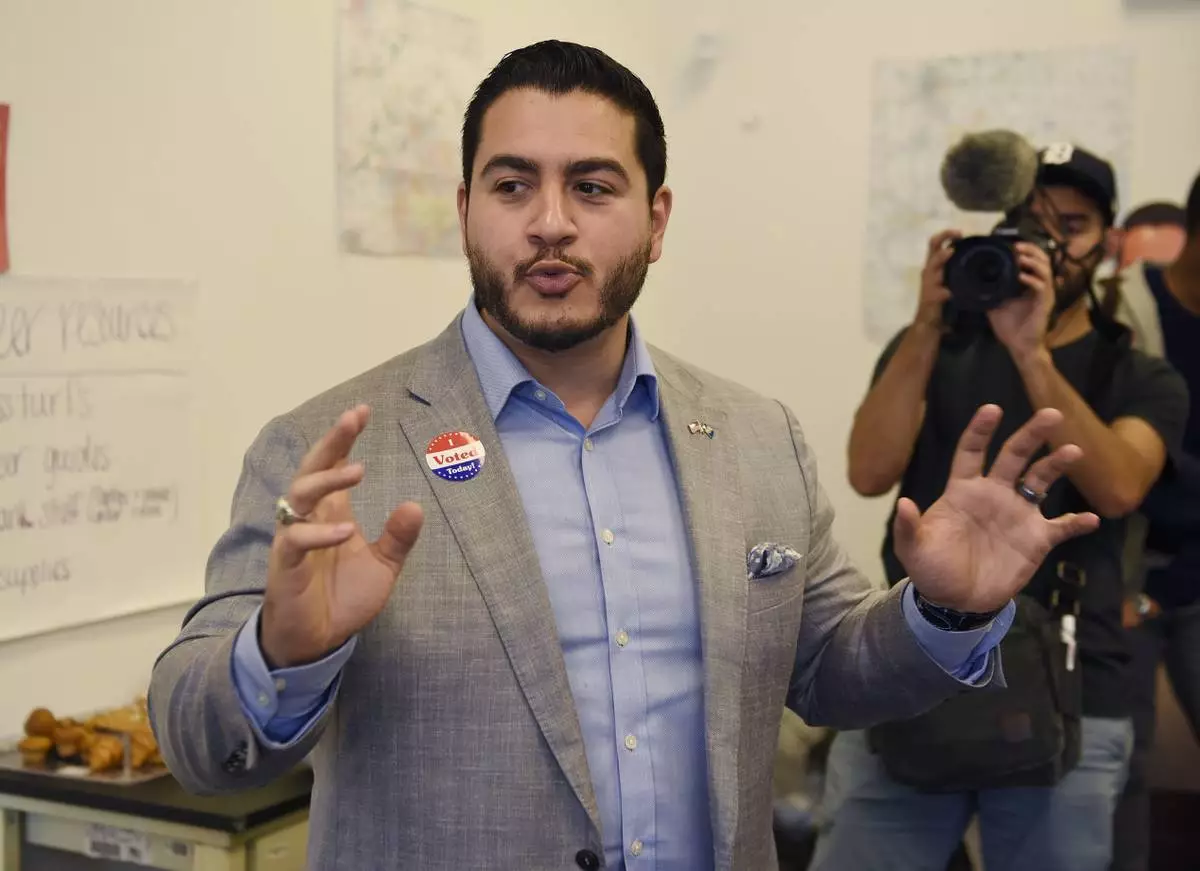
FILE - Abdul El-Sayed, Democratic candidate for Michigan governor, visits his Detroit field office to thank all of the volunteers for their hard work on the campaign, Aug.7, 2018, in Detroit. (Clarence Tabb Jr./Detroit News via AP, File)
PARIS (AP) — For powerful men in France’s film industry, this was a week of reckoning. Gérard Depardieu — the country’s most famous male actor — was convicted of sexual assault. Two days later, the Cannes Film Festival barred another actor accused of rape from walking the red carpet.
Together, the decisions sent a message that France had long resisted: that artistic brilliance may no longer shield those who abuse their power.
For decades, Depardieu was revered as French cinema’s “sacred monster” — a towering talent whose gluttony, volatility and magnetism became part of his myth. With more than 250 films to his name, many believed he would remain untouchable even after more than 20 women accused him of sexual misconduct.
Now, that myth has cracked.
The verdict has revived a broader question France has ducked since the dawn of #MeToo: Can a country that celebrates seduction and irreverence finally hold its male icons to account?
France has long lived its own #MeToo contradiction. That talent, charm, or intellect forgives misconduct. That the art excuses the artist. This is the land that gave the world Brigitte Bardot’s pout and Catherine Deneuve’s poise — and then watched both recoil when the movement came knocking. Deneuve has defended “the right" to seduce, while Bardot has dismissed feminism outright: “I like men.”
But the ground is shifting — fast.
Depardieu was handed an 18-month suspended sentence Tuesday for groping two women on a 2021 film set. He denies the charges and is appealing.
“It’s the end of impunity of artists with a capital A,” Carine Durrieu Diebolt, a lawyer for one of the two women who won their case against Depardieu, told The Associated Press. The verdict represented “a bookend for putting actors on a pedestal because they were talented,” she added.
Two days later, the prestigious Cannes Film Festival barred actor Théo Navarro-Mussy — accused of rape by three former partners — from attending the premiere of a film he stars in, even though the file was dropped for lack of evidence. The women are launching a civil complaint.
Navarro-Mussy denies wrongdoing. His lawyer said that she’s unaware of any ongoing proceedings against him.
What stunned wasn’t just the decision, but who made it. Cannes director Thierry Frémaux had long been seen as emblematic of the old guard. He defended Roman Polanski for years and continued to screen his films despite the director’s 1977 guilty plea in the U.S. for sex with a 13-year-old. In 2018, when asked why Cannes still included Polanski, Frémaux said: “These are complicated matters.”
Frémaux opened 2023's festival with a film starring Johnny Depp, despite the actor’s highly public legal battle with ex-wife Amber Heard over allegations of domestic abuse, in which he was never criminally charged. When asked about the backlash, Frémaux replied: “I only have one rule: it’s the freedom of thinking, and the freedom of speech and acting within a legal framework.”
This week, the rules changed.
“The Cannes decision is of course linked to the Depardieu verdict,” said Céline Piques of Osez le féminisme (“Dare Feminism!”), a group that campaigns against sexual violence. “(They’ve) realized which way the wind is blowing. Frémaux is trying to right the wrongs.”
Not everyone welcomed the verdict — or what followed — as a cultural turning point.
Fanny Ardant, one of French cinema’s grandes dames and a longtime friend of Depardieu, sat on his side in court. She is now directing him in a film in Portugal, despite the conviction.
“Fanny Ardant? She completely missed the point,” said Piques. “She downplayed the violence, normalized it. That’s rape culture, plain and simple.”
Juliette Binoche, Cannes jury president and one of France’s most respected actors, struck a note of restraint: “He’s not a monster. He’s a man — one who has, apparently, been desacralized.”
Her caution captured something deeper: a country caught between the urge to change and the instinct to protect its giants.
In 2024, more than 22,000 rapes were reported in France. Fewer than 3% led to convictions. “The Depardieu verdict shows there’s progress,” said lawyer Anne-Sophie Laguens, who works with victims of sexual assault. “But for most women, the barriers to justice remain enormous.”
When Bertrand Cantat — front man of Noir Désir and once one of France’s bestselling rock singers — launched a 2018 comeback tour, he had served just four years in prison for killing his partner, actor Marie Trintignant, during a violent assault.
Despite public outrage, he returned to the stage and performed.
“That would be unthinkable today,” said Piques. “The public mood has changed. What we tolerate has changed.”
One breakthrough came not from a film set, but an Avignon courtroom. The conviction of 51 men for drugging and raping Gisele Pelicot — a case long ignored despite her pleas — marked a turning point. For years, shame was hers. Now, it belongs to the perpetrators.
“It proved rapists aren’t just strangers in alleys,” said Piques. “They’re husbands. Colleagues. Respected men.”
That shift in shame is now rippling through the cultural world — once seen as a bastion of male privilege. Recently. director Christophe Ruggia was convicted of abusing actor Adèle Haenel when she was a minor, though he is appealing; and actor-director Nicolas Bedos, was sentenced for sexual assault.
Slowly but surely, yes. The system that long protected men like Depardieu is not yet dismantled, but it is shifting.
As one of the actor’s accusers said through tears after the ruling: “I’m very, very much satisfied with the decision. That’s a victory for me, really. And a big progress, a step forward. I feel justice was made.”
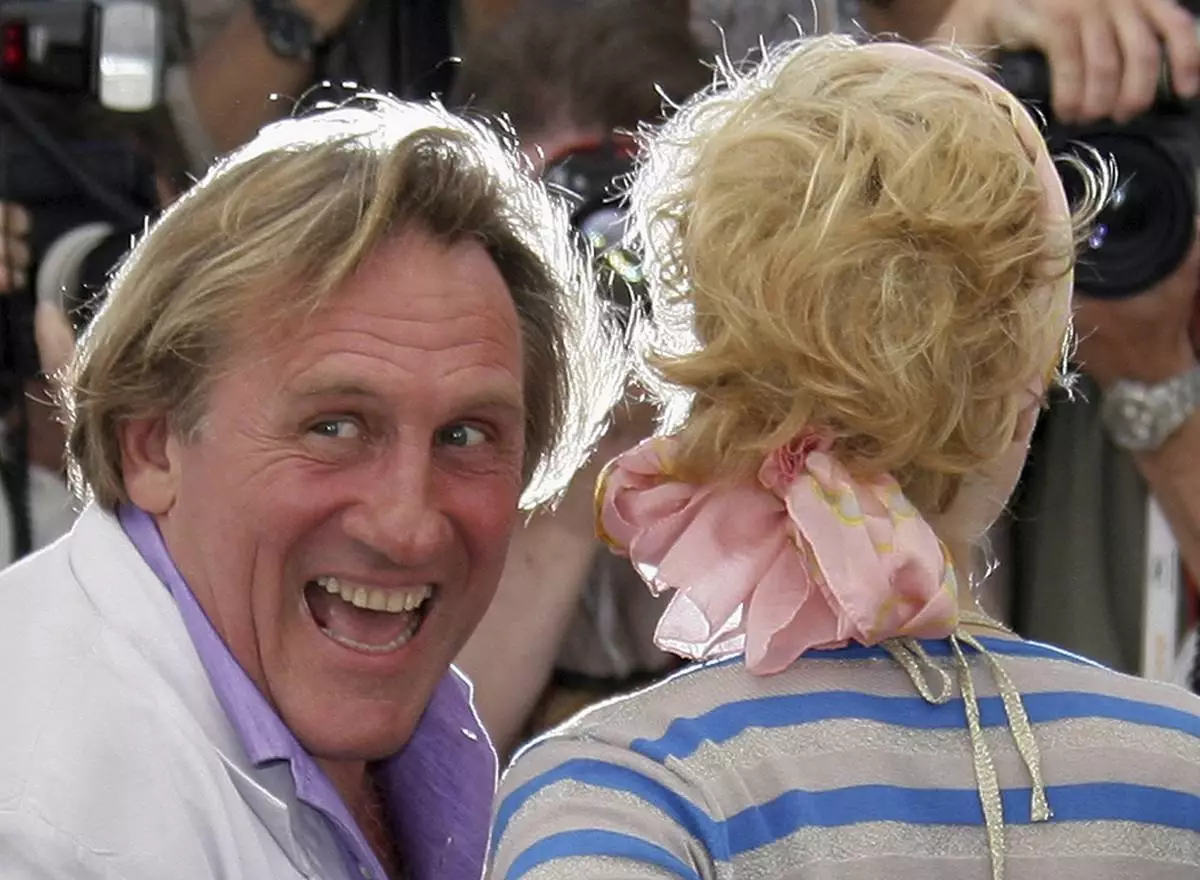
FILE - French actor Gerard Depardieu, left, and Belgian actress Cecile de France pose during a photo call for the film "Quand J'etais Chanteur," at the 59th International film festival in Cannes, southern France, on May 26, 2006. (AP Photo/Francois Mori, File)



